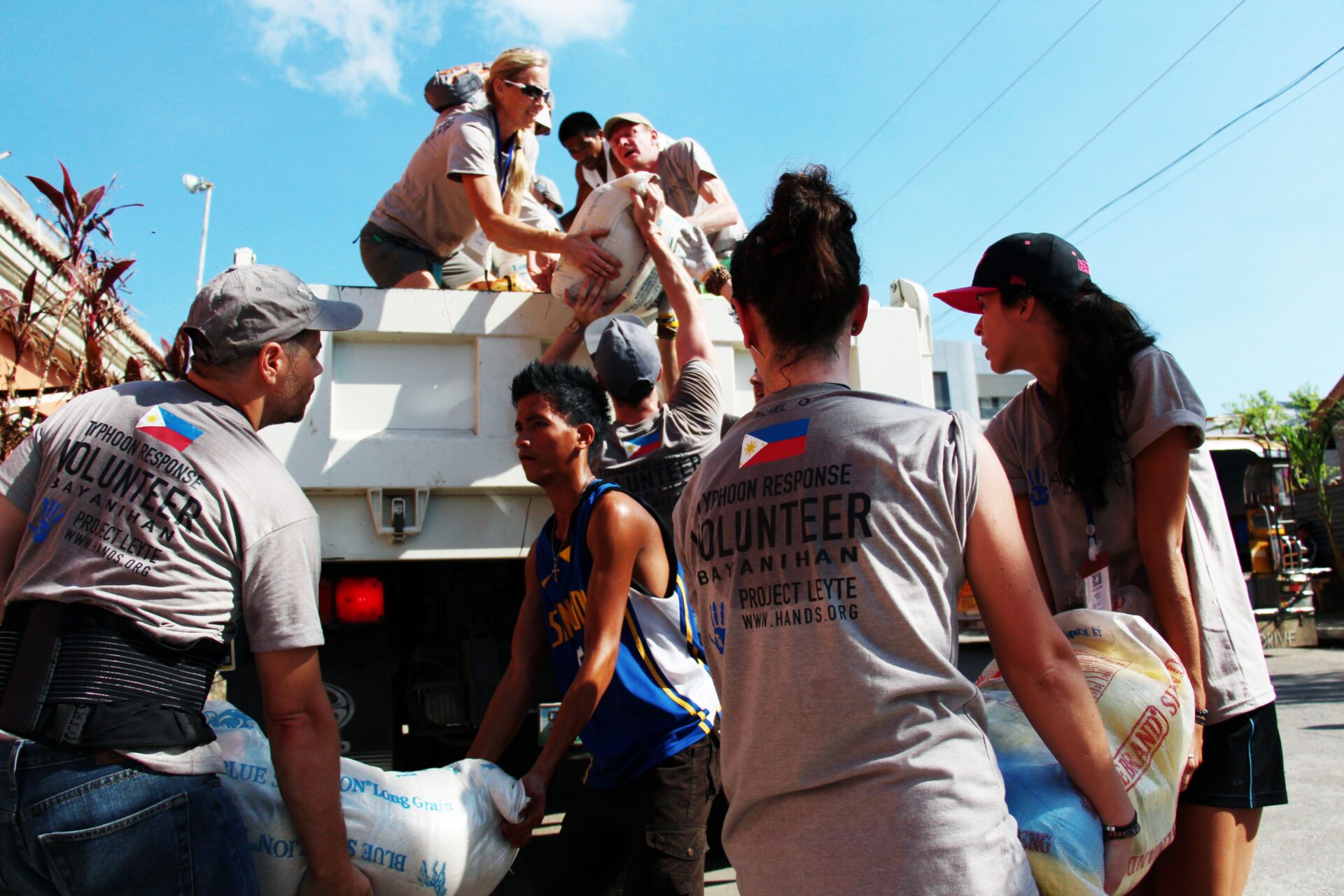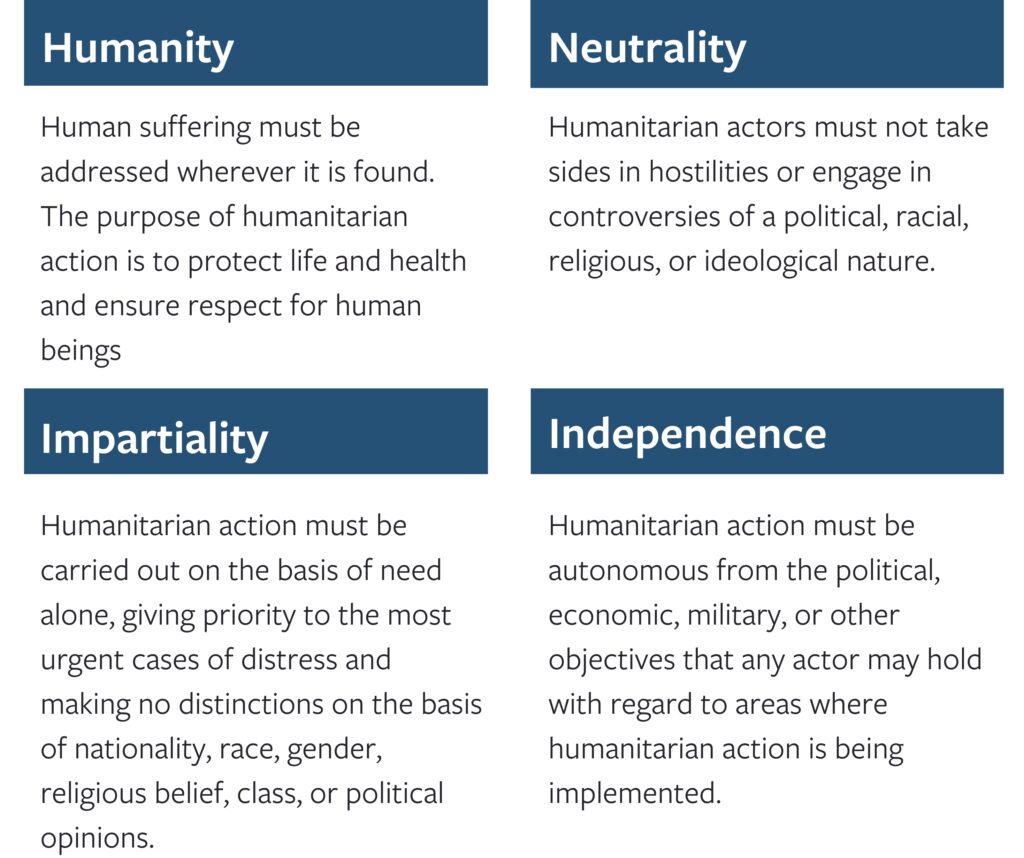
What Does It Mean To Be A Humanitarian?
August 19 marks World Humanitarian Day, a time to recognize humanitarians’ meaningful work and the risks they take every day.
Humanitarians support people in extreme need, often in areas affected by conflicts or disasters, by ensuring that their most basic needs such as food, water, shelter, and protection are met. Over the years, the scale and complexity of humanitarian work has continued to grow. As of June 2023, the U.N. Secretary-General highlighted that as many as 360 million people need humanitarian assistance worldwide compared to the U.N. Office for the Coordination of Humanitarian Affairs’ (OCHA) assessment of 136 million people five years ago.
This year’s theme, #NoMatterWhat, reflects the humanitarian principles of humanity, neutrality, impartiality, and independence that guide the operations of every humanitarian worker, every day. Enshrined in U.N. General Assembly resolutions 46/182 and 58/114, the principles ensure that aid is delivered to the people with respect and only on the basis of need—without discrimination. Such principles allow humanitarians to access affected populations by ensuring they are not siding with any party to the conflict.

Source: OCHA
Unfortunately, these principles are not always respected. This year marks the 20th anniversary of the attack on U.N. Headquarters in Baghdad, Iraq on August 19, 2003, which killed 22 humanitarian aid workers. This is one example of countless targeted attacks on humanitarians.
In addition to threats stemming from the increased politicization of aid, humanitarian operations are also undermined by administrative impediments, competition for funding, and donor reporting burdens. To reach beneficiaries in a timely manner and preserve future access to affected populations, humanitarian organizations must respond to demands from local actors while upholding the humanitarian principles. Navigating this requires extensive negotiations with stakeholders, including local actors and communities, U.N. agencies, and donors.
Against this backdrop, humanitarian response encompasses the collective efforts of local communities who normally are the first responders, advocacy teams who garner financial support from donors, operational NGOs who procure and deliver aid, and in-country NGO consortia who facilitate coordination between NGOs and stakeholders. As such, humanitarian operations rely on both nationals and expatriates to be successful. According to OCHA’s Global Humanitarian Overview 2023, local and national actors accounted for 48% of members in national-level clusters, sectors, and areas of responsibility of 29 humanitarian operations globally in 2021.
Stories From Humanitarians
To shed light on the operations, challenges, and hope of the sector, we are pleased to share stories from the humanitarian community.
Sudan
- Sudan’s INGO Forum Coordinator described his work as building a sense of community among organizations. Responding to beneficiaries’ varying needs requires collaboration between many NGOs. Creating this collaborative environment involves daily check-in calls with 70 NGO members to monitor emerging tensions and engaging with national civil society organizations, academia, and donors to remove administrative barriers as neutrality alone does not guarantee NGOs access to affected areas. While the task is not easy, he believes that there is an opportunity to improve the existing global aid system in Sudan. The overwhelming needs following the breakout of violence in April has provided an opportunity to review the current response and redesign it for the better. Although NGOs and communities are coordinating to support those in need, 2.6 million people in Sudan are still displaced. In such dynamics, he also recognizes the vital role of the Sudanese civilians who have welcomed displaced people into their homes.
Turkey (Türkiye) & Syria
- Regarding advocacy, a Director of Partnership Development and Management from a local NGO in Turkey (Türkiye) who is part of the Syria response highlighted that engagement between humanitarian organizations and affected populations is an important part of acquiring accurate information about the situation on the ground. Once a Syrian affected by the crisis, another D.C.-based advocate shared insights about his work in conveying the needs of fellow Syrians to policymakers and keeping operational staff updated about relevant discussions at the United Nations. The colleague identified language barriers as a key challenge for local organizations. While high-level statements are published in U.N. languages, daily communications including email correspondence are mainly in English. He stressed that using native languages is vital for truly understanding locals’ needs.
Ukraine
- Another advocate who is working on Ukraine shared a similar message. Communications should be delivered in the local language to increase transparency and accountability to affected populations, host communities, and the public. Having lived experience of forced displacement herself, the colleague tries to put people at the center of coordination and advocacy by inviting Ukrainians to high-level meetings.
Aid, as one InterAction Member put it, is not charity, but an act of solidarity. Although our Members operate in different contexts and roles, it is clear that the humanitarians are united in their goal to save lives. These individuals remain true to their shared principles even amidst challenges. On World Humanitarian Day 2023, InterAction recognizes the resilience of humanitarian workers who continue to do their best to reach those left furthest behind in crises—no matter who, no matter where, and #NoMatterWhat.








